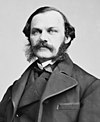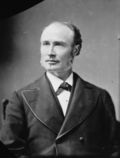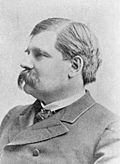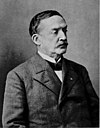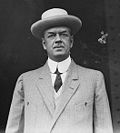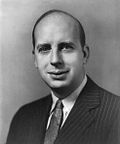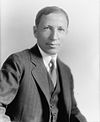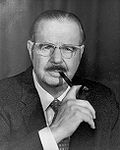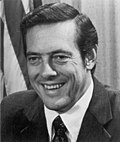List of chairs of the Republican National Committee
List of U.S. political party chairs From Wikipedia, the free encyclopedia
The chair of the Republican National Committee is the party chair and de-jure leader of the Republican Party.[1][2]
| Chair of the Republican National Committee | |
|---|---|
 | |
| Appointer | Republican National Committee |
| Term length | 4 years; renewable |
| Inaugural holder | Edwin D. Morgan |
| Formation | 1856 (169 years ago) |
| Website | Official website |
The chair manages the day-to-day affairs and operations of the Republican National Committee (RNC), prepares and conducts the quadrennial Republican National Convention, promotes the Republican "party brand" and political platform, as well as assists in party fundraising and election strategy.[3]
The current officeholder is Michael Whatley of North Carolina, who took office on March 8, 2024.[4][5]
Chairs of the Republican National Committee
Further reading
- Cotter, Cornelius P., and Bernard C. Hennessy, eds. Politics without Power: The National Party Committees (1964) excerpt
- Heersink, Boris (2023). National Party Organizations and Party Brands in American Politics: The Democratic and Republican National Committees, 1912-2016. Oxford University Press. doi:10.1093/oso/9780197695104.001.0001. ISBN 978-0-19-769514-2.
- Heersink, Boris. "Examining Democratic and Republican National Committee Party Branding Activity, 1953–2012." Perspectives on Politics (2021): 1–18.
- Heersink, Boris. "Trump and the party-in-organization: Presidential control of national party organizations." Journal of Politics 80.4 (2018): 1474–1482. online
- Heersink, Boris. "Party Brands and the Democratic and Republican National Committees, 1952–1976." Studies in American Political Development 32.1 (2018): 79–102. online
References
Wikiwand - on
Seamless Wikipedia browsing. On steroids.



